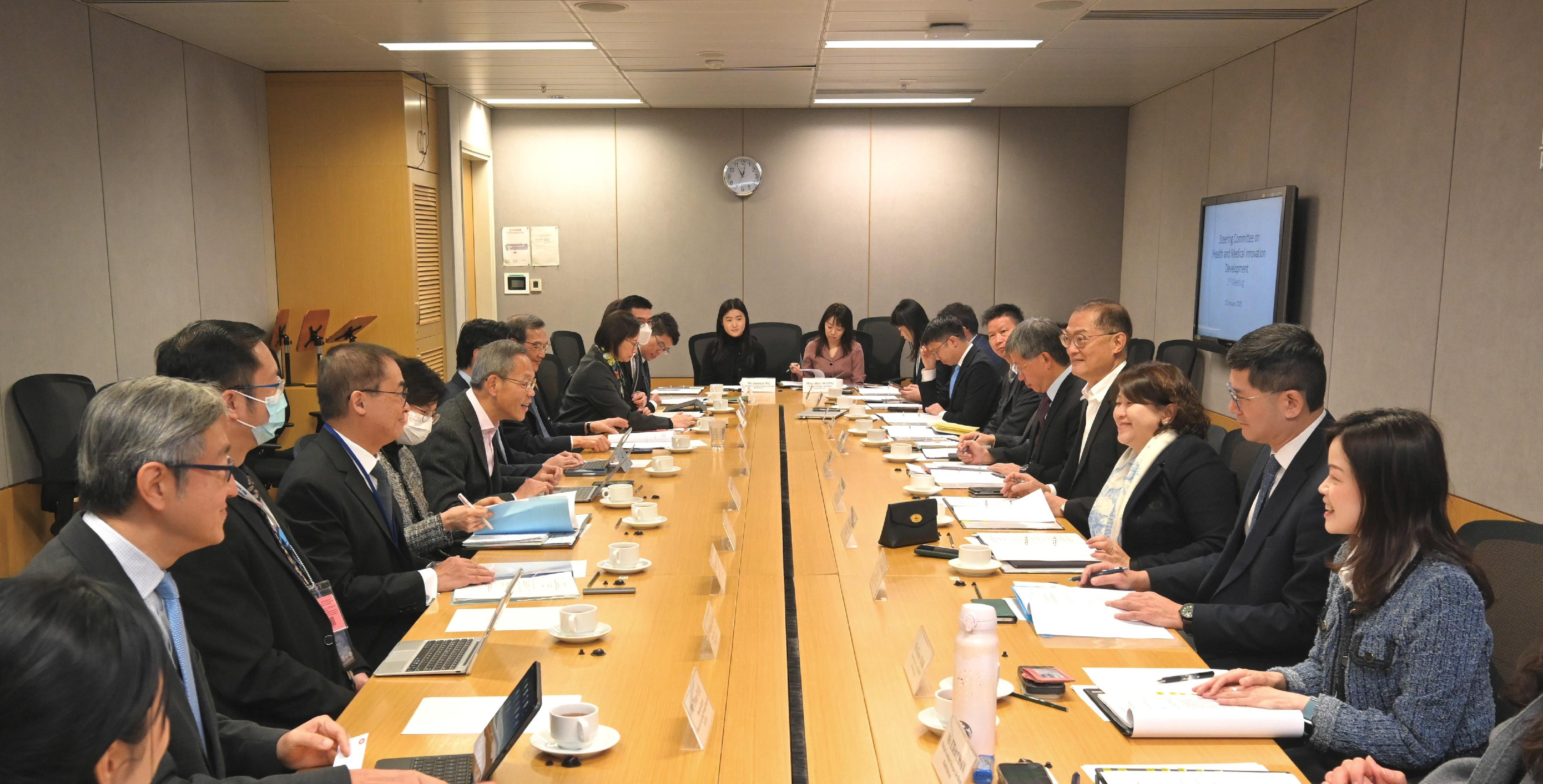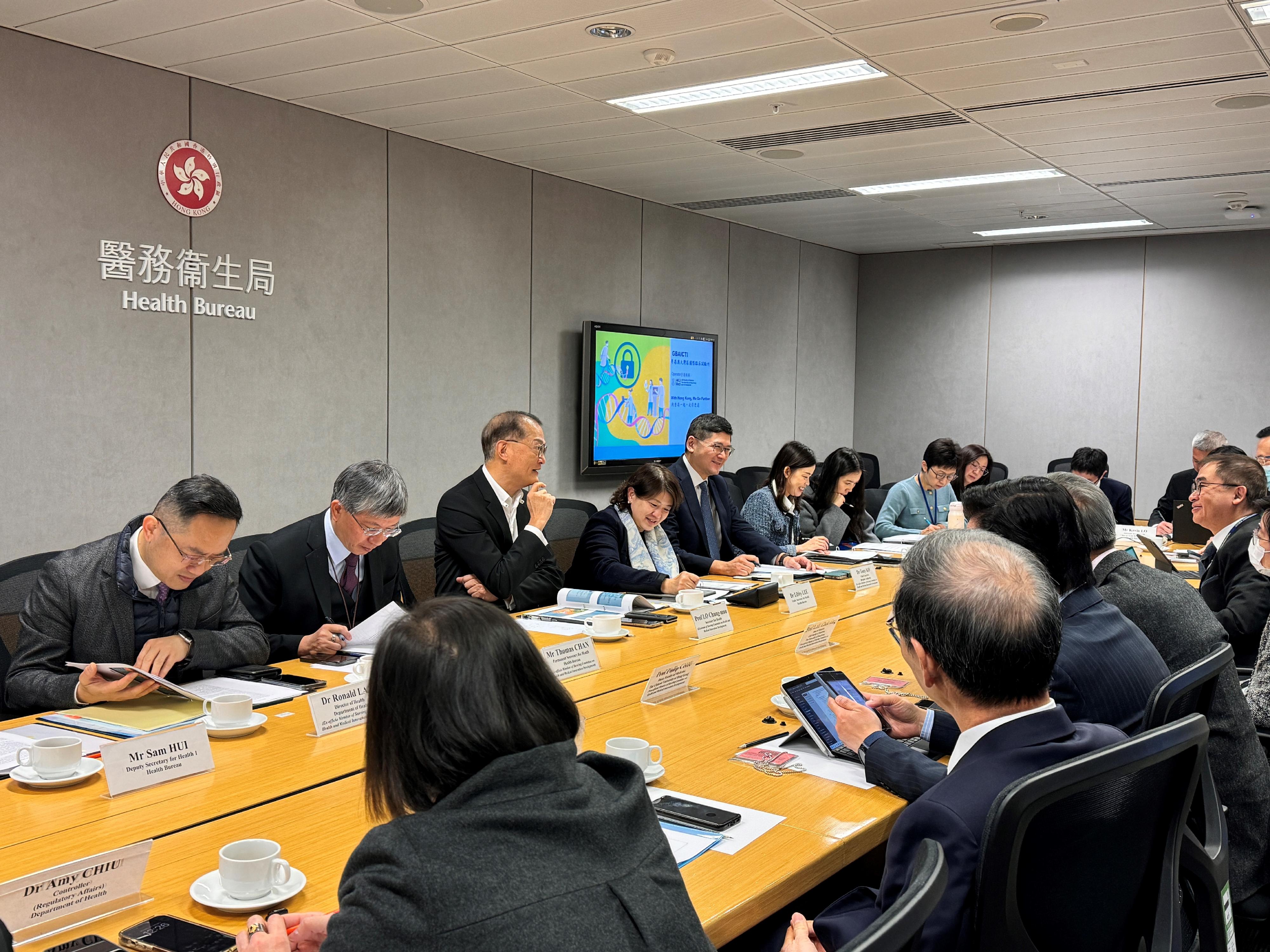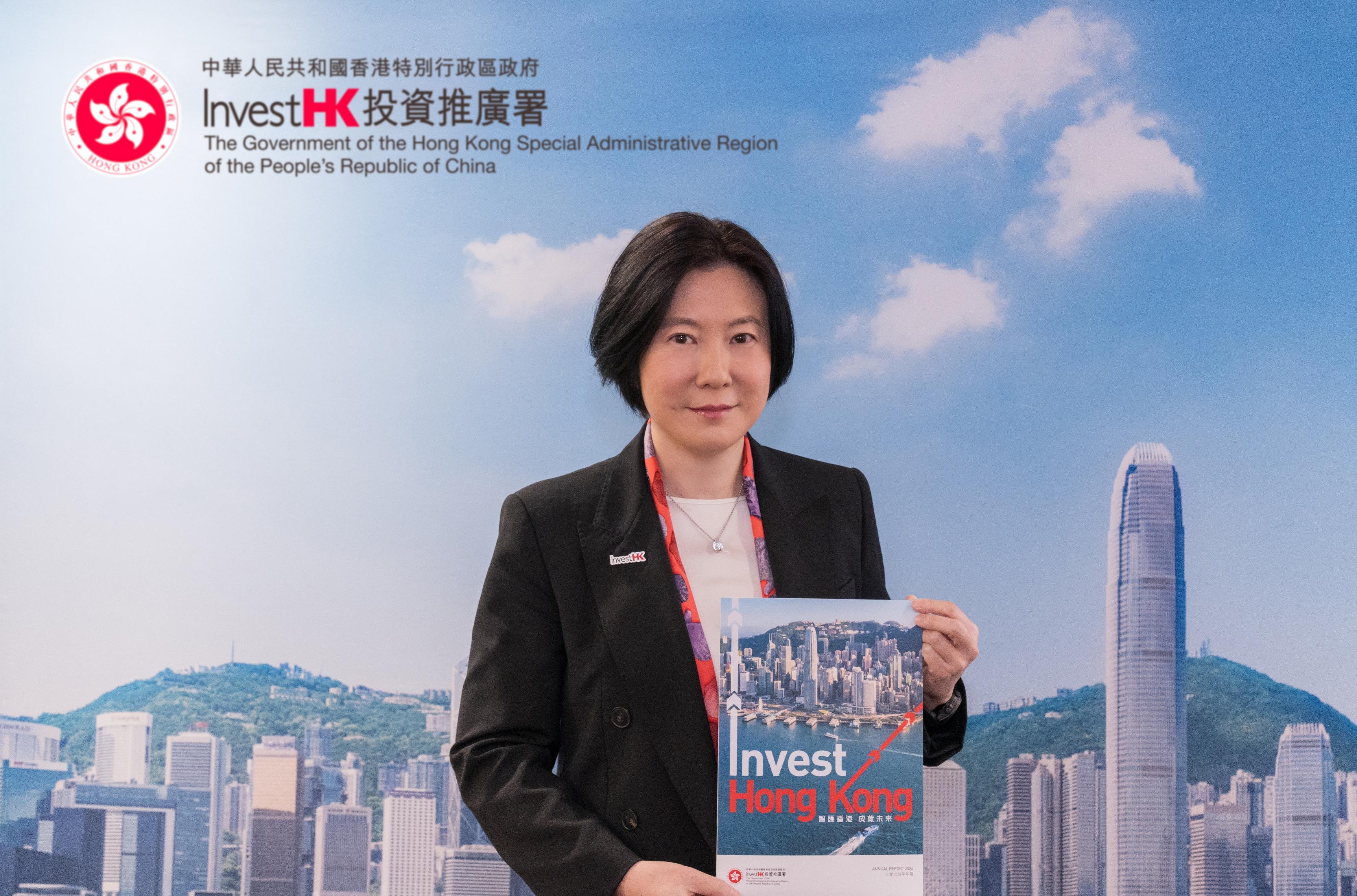SFST’s keynote address at Bank of Singapore event “Beyond 2025: The Changing World Order” (English only)
Following is the keynote address by the Secretary for Financial Services and the Treasury, Mr Christopher Hui, at the Bank of Singapore event “Beyond 2025: The Changing World Order” today (January 20):
Rickie (Head of Private Banking, Greater China, and Chief Executive, Hong Kong Branch, Bank of Singapore, Mr Rickie Chan), esteemed guests, ladies and gentlemen,
Good afternoon. It is both an honour and a pleasure to join you today at this remarkable forum, which brings together wealth owners, leading professionals, market experts, and stakeholders from across the region. May I extend a warm welcome to all of you.
As we stand at the beginning in 2025, it is inspiring to see familiar faces, as well as new ones, gathered here to discuss some of the most pressing topics shaping the future of family offices, the asset and wealth management sector, and the immense opportunities for ultra-high-net-worth individuals (UHNWIs) in Hong Kong. Together, we will explore how Hong Kong continues to position itself as Asia’s leading financial hub in an ever-changing global landscape.
The financial landscape of Hong Kong
Hong Kong has long been recognised as a city of unparalleled opportunity, boasting an open and international market, extensive investment options, and a deep pool of professional talent. These attributes have cemented our position as a global leader in financial services and investment.
Family offices, in particular, have become an increasingly vital component of the wealth management ecosystem. In recent years, we have witnessed a surge in the establishment of family offices in Hong Kong, driven by the growing number of UHNWIs in the region. Hong Kong is uniquely positioned to cater to their needs, offering a world-class platform for managing and growing wealth.
As of the end of 2023, Hong Kong’s asset and wealth management business reached an impressive HK$31.2 trillion (approximately US$4 trillion), with 64 per cent of these assets sourced from non-Hong Kong investors. Our private equity capital under management stood at US$231.1 billion as of September last year, making us second only to Mainland China in Asia. Furthermore, Hong Kong remains the largest hedge fund hub and cross-border wealth management centre in the region.
A recent published market study revealed that investments of billionaires have outperformed the performance of the broader equity markets for the past 10 years. Between 2015 and 2024, their total wealth increased by 121 per cent globally from US$6.3 trillion to US$14.0 trillion. The rise of family offices in Hong Kong is also reflective of this broader global trend. It is estimated that Hong Kong had over 12 500 UHNWIs in 2023, the highest amongst Asian cities. Moreover, there are around 2 700 single family offices in Hong Kong, with over half of them having assets of US$50 million or above.
Looking ahead, the potential for UHNWIs in Hong Kong remains immense. As an international financial centre, Hong Kong is not only poised to maintain its leadership in asset and wealth management but also to grow alongside the Asia’s economic expansion. To achieve this, we have identified four key pillars that will underpin our strategy, and they can easily be remembered as ABCD, i.e. attracting wealth as a global family office hub, building stronger connectivity with the Mainland, championing capital for social good, and diversifying investments and business opportunities. Together, these pillars form the foundation of our vision for a dynamic and prosperous future.
Attracting wealth as a global family office hub
The first pillar focuses on strengthening Hong Kong’s position as a global family office hub. In 2023, the Government issued the Policy Statement on Developing Family Office Businesses in Hong Kong, outlining a clear roadmap for creating a conducive and competitive environment for global family offices and asset owners.
One of the measures is the establishment of a dedicated FamilyOfficeHK team in the Government. It has so far assisted over 140 family offices in either setting up or expanding their operations in Hong Kong as of November last year. This one-stop services platform underscores our commitment to fostering a thriving environment for family offices and solidifying Hong Kong’s reputation as a preferred destination for wealth management.
As another important measure, we have also introduced legislative amendments to provide a profits tax exemption for family-owned investment holding vehicles (FIHVs) managed by single family offices. This exemption, effective for any years of assessment commencing on or after April 1, 2022, highlights our dedication to creating a favourable tax environment for family offices.
Another significant initiative is the launch of the New Capital Investment Entrant Scheme (New CIES) in March last year. Under this scheme, eligible investors who make a minimum investment of HK$30 million in permissible assets are granted the opportunity to reside and develop in Hong Kong. As of December last year, the New CIES has attracted over 800 applications and generated nearly 7 000 inquiries. Not only does this scheme enhance Hong Kong’s appeal to global investors, but it also supports the development of strategic industries such as innovation and technology via a dedicated CIES investment portfolio, contributing to the long-term growth of our economy.
Building stronger connectivity with the Mainland
The second pillar emphasises the importance of Hong Kong’s unparalleled connectivity with the Mainland. This unique advantage continues to offer investors and family offices a wide array of opportunities.
In April last year, the Mainland announced a series of measures to enhance mutual access between the capital markets of the Mainland and Hong Kong. These included the inclusion of real estate investment trusts (REITs) under Stock Connect and enhancements to the Mutual Recognition of Funds (MRF) programme. In fact, during the recently concluded Asian Financial Forum, Governor Pan Gongsheng of the People’s Bank of China announced additional measures to support Hong Kong’s development as an international financial centre, and they include an increase of asset allocation of the country’s foreign reserves in Hong Kong.
These initiatives further bolster Hong Kong’s role as an international gateway between the Mainland and the rest of the world, solidifying our position as a leading asset and wealth management hub. Moving forward, we will continue to explore new ways to deepen our integration with the Mainland while expanding our global reach.
Championing capital for social good
The third pillar highlights Hong Kong’s role in aligning wealth management with social good. In today’s complex world, issues such as climate change, poverty, and health demand a more sustainable and impactful approach to managing wealth.
Families are increasingly adopting a long-term perspective, focusing on sustainability and impact investing. Hong Kong is uniquely positioned to support this shift, given our emphasis on innovation, sustainability, and social responsibility.
In 2023, the Government launched “Impact Link” (iLink) – an initiative under the Hong Kong Academy for Wealth Legacy (HKAWL). By gathering experienced donors and showcasing successful projects, this platform helps family offices and asset owners make informed decisions on philanthropic projects, fostering meaningful connections between donors and transformative ventures. By positioning Hong Kong as a global philanthropic hub, iLink enables wealth owners to deploy charitable capital in ways that benefit Hong Kong, Mainland China, and the broader international community.
Diversifying investments and business opportunities
The fourth and final pillar focuses on creating a diversified and robust investment and business environment to attract and retain investors.
To enhance our competitiveness, we have introduced initiatives such as the open-ended fund company (OFC) and Limited Partnership Fund (LPF) regimes, along with a re-domiciliation mechanism for foreign funds. These measures aim to provide greater flexibility and choice for asset and wealth managers, and market reception has been encouraging. The number of OFCs grew by over 90 per cent to 472 last year, while LPFs grew by over 35 per cent to reach around 1 000 for funds registered.
Additionally, we are consulting the industry on proposals to expand the scope of qualifying investments eligible for tax concessions for funds and single family offices. They shall include emission derivatives/allowances, insurance‑linked securities, loans and private credit investments, virtual assets and so on, allowing transactions in assets of these classes to enjoy profits tax exemption.
Concluding remarks
Ladies and gentlemen, as we look beyond 2025, Hong Kong remains steadfast in our commitment to excellence and innovation. Our city is not only an international financial centre but also a vibrant capital for engaging events and gatherings. In March later this year, we will host the Wealth for Good in Hong Kong Summit again. The third edition of the summit to be held under the theme “Hong Kong of the world, for the world” will gather and connect elites from around the world, underscoring Hong Kong’s status not only as a leading international financial centre, but also a hub for global family offices to pursue their dreams and seek business opportunities.
In closing, let me emphasise that the future of Hong Kong’s asset and wealth management industry is bright. By leveraging the four pillars – attracting wealth as a global family office hub, building stronger connectivity with the Mainland, championing capital for social good, and diversifying investments and business opportunities – we will continue to sharpen our competitive edge, attract global capital, and foster sustainable growth for generations to come.
I look forward to the engaging discussions today, exchanging ideas, and collaborating on strategies to advance our shared goals. Together, we will not only strengthen our industry but also contribute to the broader aspirations of Hong Kong.
Thank you, and I wish you all a happy Chinese New Year and a prosperous Year of the Snake. read more




